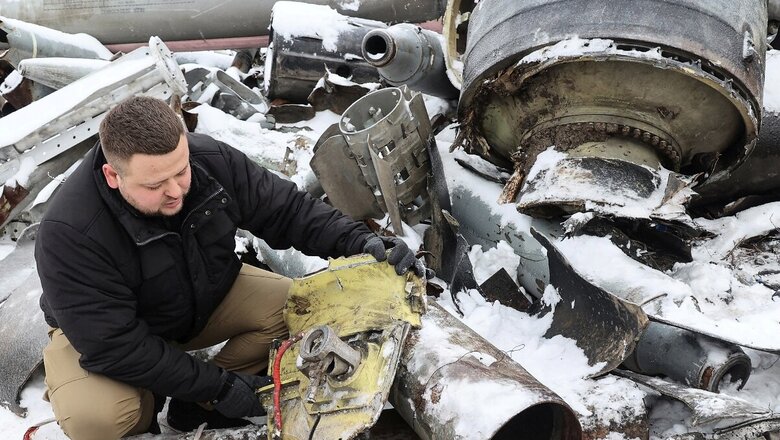
views
EU member states reached agreement “in principle” Wednesday on a plan to use billions of euros in profits from frozen Russian central bank assets to arm Ukraine.
Leaders of the 27-nation EU agreed in March to move ahead with the proposal expected to unlock some three billion euros ($3.3 billion) a year for Kyiv — but diplomats had yet to hammer out details of the plan.
Posting on X, the bloc’s Belgian presidency said EU ambassadors had “agreed in principle on measures concerning extraordinary revenues stemming from Russia’s immobilised assets.” “The money will serve to support Ukraine’s recovery and military defence in the context of the Russian aggression,” it said.
“There could be no stronger symbol and no greater use for that money than to make Ukraine and all of Europe a safer place to live,” added EU Commission chief Ursula von der Leyen. The EU froze around 200 billion euros of Russian central bank assets held in the bloc as part of punishing sanctions imposed on Moscow for sending troops into its neighbour in February 2022.
Simply confiscating all that money and giving it to Ukraine’s reconstruction efforts is not seen as an option, as that could rattle international markets and undermine the euro. But EU leaders settled instead on a plan to target the interest being made by the frozen assets — which they insist is legally sound despite warnings by the Kremlin it would trigger “serious consequences”.
Under the deal, to be submitted to EU ministers for formal approval, 90 of the interest will go to a central fund used to pay for weapons for Ukraine, the European Peace Facility, while 10 percent will go to the EU’s separate Ukraine Facility. About 90 percent of the funds frozen in the EU are held by the international deposit organisation Euroclear, based in Belgium.
As part of the agreement, diplomats said Belgium agreed to send Ukraine the totality of the tax revenues generated by the profits — which had been a sticking point in negotiations. That is expected to free up an additional 1.7 billion euros in tax revenues for Ukraine in 2024. Euroclear’s fee for handling the assets was also slashed tenfold, to 0.3 percent of profits, as part of the deal, diplomats said.



















Comments
0 comment